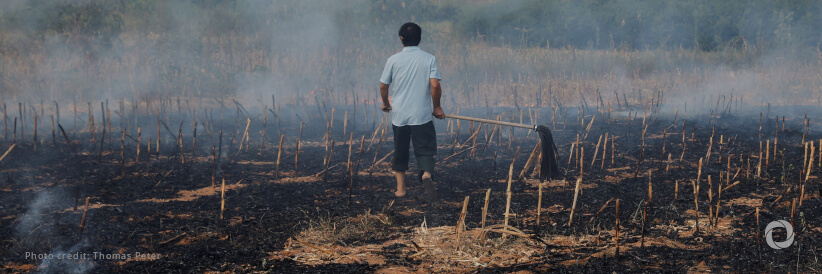The Green Climate Fund (GCF) through its Simplified Approval Process (SAP) and the Climate Risk and Early Warning Systems (CREWS) convened 70 experts and development partners, on 12 January 2023, to validate a Scaling-up Framework, that will facilitate access to financing to develop early warning systems, for countries that are most exposed to the impacts of climate change.
The collaboration is expected to provide developing countries that have successfully implemented projects with CREWS funds, faster access to climate finance, through the GCF Simplified Approval Process.
The SAP-CREWS Scaling-up Framework will allow countries that have programs related to data collection, hazard monitoring and predictions, early warning communication, and community response capacities that can be scaled-up, up to potentially have accelerated access to GCF SAP funds, through GCF Accredited Entities, if certain parameters and procedures will be met. They will also benefit from technical assistance from a wide range of development partners.
The proposed Scaling-up Framework on Early Warning is being developed in consultation with national experts and key development partners, such as the World Meteorological Organization (WMO), the UN Office for Disaster Risk Reduction (UNDRR), the World Bank, regional development banks such as the African Development Bank (AfDB), the UN Development Fund (UNDP) and the UN Environment Programme (UNEP) amongst many other.
The Scaling-up Framework will also benefit from a new financing mechanism, the Systematic Observation Financing Facility (SOFF) established so countries can sustain their networks of observation stations that provide foundational data for effective weather predictions and warnings.
At the opening of a virtual “Validation Workshop on Scaling up Framework Early Warning in Developing Countries affected by Climate Change”, held on the 12th of January, the Chair of the CREWS initiative, Gerard Howe, who heads the Adaptation, Nature & Resilience Department at UK’s Foreign Commonwealth and Development Office (FCDO) reminded participants that “the UN Secretary-General in the margins of the recent UNFCCC COP27 in Sharm-El-Sheik, Egypt, presented a plan to have all people covered by early warning systems within five years. Reaching the plan’s goal requires scaled-up financing, along with strong and effective collaboration and partnerships”. He referred to the Scaling-up Framework on Early Warning “as a potentially key contribution to the success of the UN Early Warning for All Plan.” The Workshop set out to define the criteria that would facilitate access to additional financing for countries.
WMO Assistant-Secretary-General Wenjian Zhang, at the same event, put the challenge in context: “early warning systems are effective tools to minimize the loss and damage due to extreme events and to adapt to climate change, yet, one-third of the world’s people, mainly in the least developed countries and small island developing states, are still not covered by early warning systems.”

